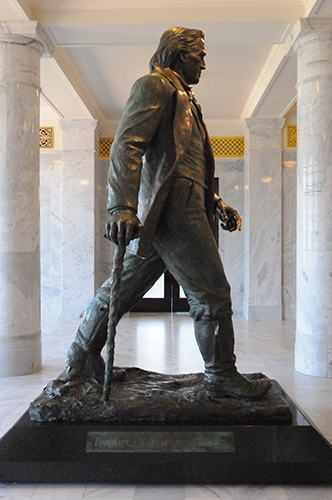Posts
Showing posts from 2023
The Difference Between Fortune Telling and Patriarchal Blessings: a Lesson Learned from Janet Russon
- Get link
- X
- Other Apps
Reconciliation: the Rejection of Penal Substitutionary Atonement in The Book of Mormon
- Get link
- X
- Other Apps
The Story of Prophetic Fallibility in Acts 15 Everyone Skips
- Get link
- X
- Other Apps
"I could never be a convert" and Other Lies I've Heard
- Get link
- X
- Other Apps
Why Supporting Gender Affirming Care in the Church is Important
- Get link
- X
- Other Apps










